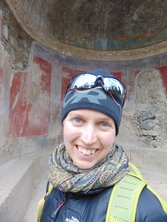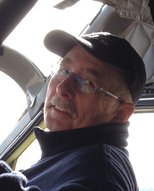 Summer is often a time when writers take a break and enjoy the great outdoors for a while. But you don’t want to stop writing altogether! That’s why NOWW has launched a new contest that will keep you writing. The NOWW Flash Fiction challenge is now accepting short short story entries of 500 words or fewer. Not only is it a relatively light and breezy summer writing exercise, the top three stories will earn cash prizes and publication in our blog this fall. What’s Flash Fiction? Flash fiction stories are, well, short. Sometimes called ‘micro-stories’, ‘postcard stories’ (if a postcard is part of the contest)—or ‘short short stories’—flash fiction challenges the writer to fit a complete story into very few words. While there isn’t a paint-by-numbers formula for flash fiction, there is a certain art to it. It’s not about trying to squish a 3,000-word story into 500 words. Here are a few links to help you get a better idea of the craft—and to get the creative juices flowing: http://flashfictiononline.com/main/ (Example pieces) https://www.hysteriauk.co.uk/2017/04/07/starting-flash-alex-reece-abbott/ (A UK contest with tips from the judges about how to write flash fiction) https://www.theguardian.com/books/2012/may/14/how-to-write-flash-fiction (Another how-to written by David Gaffney) The Rules:
Two members of the NOWW board will judge the contest. Never tried flash fiction? Now is the time to give it a try. You have two months to write—and edit—500 words. That’s about seven or eight words a day! By the way, this blog post is 363 words.
0 Comments
 How long have you been a member of NOWW? About a decade and a half ago I was one of NOWW’s youngest members for several years. It was such a diverse and supportive community, one where I felt comfortable sharing my work. Returning seriously to writing in the last year prompted me to return to NOWW. No surprise, NOWW is as supportive and welcoming as it used to be! What do you normally write? When I participated in readings as a teenager, I brought mostly novel excerpts and poetry to the table. My focus has broadened to include nonfiction, and I am a regular contributor to The Walleye. I have also written for Lake Superior News and Nature Conservancy of Canada’s blog, Land Lines. I love having the opportunity to interview people and learn more about interesting topics. My novel—one that has been in my head and in the works for years— is the kind of writing I take absolute pleasure in, a form that feels familiar. While I am still putting together the building blocks of writing nonfiction and magazine articles, my fictional work has a flow to it that I love. Do you have a favourite book or author? I enjoyed reading Joseph Boyden’s books for their visceral quality and intimate reflection of Canadian history and culture, although I have to admit that I’ve become a bit more skeptical of his authenticity given recent news. I thoroughly enjoy Jennifer Egan’s novels. She’s a skillful novelist and I’m especially attracted to how she conveys the thought processes and inner struggles of her characters. Let’s get to know you a bit better. Tell us a bit about yourself and your inspirations. I’m a lifelong outdoors enthusiast, and I take pride in rattling off a long list of outdoor sports that I engage in as much as possible. I am convinced that I wouldn’t be writing without the influence of the natural world. Some of my best ideas emerge while running or hiking on bush trails or country roads. Tell us about your writing style. My novel began as a series of scenes, in no particular order, that I gradually put together into a 333-page first draft. This process was like building a brick wall or sewing a quilt: I linked those scenes together, adding transitions the way someone else might smooth over mortar or sew pieces of fabric. I didn’t actually create a plot outline until I was about a third of the way into the book. I pride myself in creating complex characters and writing with attention to sensory detail. I love the feeling of being completely immersed in a scene, and I want to convey this to a reader as best I can. Can we see you at any upcoming NOWW events? My favourite NOWW events are workshops. I really appreciate having the opportunity to learn from others who have more skill and expertise than I do. Where can we learn more about you and your writing? I can be found on Facebook at www.facebook.com/emchristensenwriter and on Wordpress at https://emmachristensenwriter.wordpress.com. I use social media to update others on where to find my published work, and to post travel blogs and slice of life pieces. And to end things off, tell us something surprising about yourself! My favourite random fact about myself is that I refuse to own a car that doesn’t have a standard transmission. I’m a self-admitted control freak and it appeals to me to be able to decide when to shift gears. By Tim Gwyn The clearest benefit of my attending writing conventions is that I got a publishing contract through one. But that’s not the whole story, and it certainly isn’t why I started going. When I first wrote fiction, in my tweens and twenties, I didn’t have a lot of training, just a desire to create stories. When I came back to it later, I realized I needed more skills. I live in Kenora where there isn’t as much for writers as there is in Thunder Bay or Winnipeg. I found out about a small convention in Kenora called Word on the Water. That was my first exposure to a Blue Pencil Café, a quick critique of a few pages of my writing by an established author. The 15-minute time frame forces the focus onto problems that jump out at the first reading, and often results in bite-size suggestions that are easy to digest. I signed up for a workshop, too. After that, I went to the C4 LitFest in Winnipeg. This was a small writing convention that spun off from the much larger Central Canada Comic-Con. I went because I had finished my first novel, or at least written it through to the end, and didn’t know what came next. I went in thinking writing the book was the hard part. I attended panels on editing, querying agents, pitching publishers, and self-publishing. I came out stunned and demoralized, but wiser and ready to brace myself for the long haul. Many conventions offer longer workshops or seminars, in addition to the one-hour panels and presentations. I’ve learned all sorts of stuff, from how to create a story by starting with random characters, to writing for the five senses. Don’t forget the Blue Pencil sessions. They’ve been a powerful tool for me, and it’s fun to get input from famous authors. I said earlier that I started going to conventions to learn about writing, and I still do. But I have another reason. To meet people. It feels good to have friends and acquaintances in writing circles, and it’s also helpful, often in unexpected ways. At every stage of my writing, I’ve found help at conventions. People I’ve met have helped me as beta readers, exchanged novels with me for critiquing, offered me a venue for a public reading, invited me to join a critique group, provided a reference so I could take an Odyssey online course, helped me write query letters, given me contact info for agents, offered me tips on reducing word count, explained why my opening pages were not winning over agents or publishers, offered me a publishing contract, and contributed a back-cover blurb to help promote my novel. I met my freelance editor at a con. You can find one online, but I felt better approaching an editor I had seen speak on a panel. The clean manuscript that came out of our work was much more marketable. After that, I went to conventions to pitch my novel to publishers. That’s another thing I prefer to do in person. My successful pitch was actually made at a party. It’s not all business, of course. Sometimes socializing is just being sociable. When I was trying to interest publishers in my novel, my motto was: “I’m going to pitch everybody before I quit, and I still want to have friends when I’m done.” I enjoy having lunch or a drink, even with people who turned me down, because they were willing to take a look at my work. They were on my side, and they still are. Some of the larger conventions contact me now, instead of the other way around, and I sit on some of the panels or moderate them. I do a slide show on Alternative Aviation in SF, and I try to help people write better aviation scenes, because that’s my specialty. More generally, I advocate joining a critique group and getting an editor. This winter, I heard that an old friend was setting up an afternoon of writing panels at the library in Portage la Prairie, Manitoba. I haven’t forgotten the people who came to my small town to help writers, so I felt it was worth the drive to give something back. I’m a regular at Keycon in Winnipeg and Can*Con in Ottawa. The cons I go to lean towards speculative fiction, because that’s my field, but you can find one closer to your own interests, or attend a con that offers thirty-one flavours like Calgary’s When Words Collide, and peruse the programming for your kind of thing. All the conventions have websites, so you can find them online and see what they offer. I recommend joining a mailing list if you’d like to keep an eye on a convention without signing up right away. That way, you’ll be able to see how the programming is shaping up, and you’ll get advance warning as they start to sell out. If you joined NOWW to meet people and gain skills, those might also be good reasons to consider attending a convention or two. Expenses are tax deductible if you have a business, by the way. Yes, you can learn about that at a convention, too. Good luck, and have fun!  Timothy Gwyn is the pen name of Tim Armstrong, a professional pilot in Kenora. His speculative short story, “The Emperor’s Dragon” will be in the June issue of NewMyths.com, and Avians, his young adult science fiction novel, is being released by Five Rivers Publishing on August 1st. His website is at timothygwyn.com and on Twitter he is @timothygwyn. by Charles Campbell This April I was excited to participate in the 5th Anniversary 10x10 Play Showcase, my third year involved with this festival of locally written plays. In both 2015 and 2016 I was a playwright and had the opportunity to see my work performed. My 2017 contribution was different—I went from having my work staged to directing a piece written by someone else. Taking someone else’s words and translating them into a 4-dimensional event was both a challenge and a thrill. I have not changed my mind about how hard it is to write a good play, but I do have a new appreciation for the skill required to take written words and bring them to life. The experience also taught me some lessons about writing plays which will inform my submission for 2018. Know your characters: As a writer, I crafted dialogue for three characters and described the set. Talking to the directors of my plays was easy; they asked questions about motivation and I answered, sometimes with “not sure exactly”. As a director, I had to be sure: actors who understand how to approach their characters are better at bringing them to life. In a 10 minute play the script won’t have all the answers, but the writer should. I will be putting more thought into motivation and tone before submitting my next play. Writing requires an ear for dialogue, but a play is more than a reading. Achieving emotion on stage requires that the actors can understand what drives their character. No Close ups: The big writing money is in Hollywood and we all spend a lot of time watching movies and television, and that makes it easier to write screenplays. But it makes it harder to write a stage play. As a director, I learned that there are no close ups on a stage—no tight camera angle is available to exclude the rest of the stage. In order for the audience to focus on a single character, a prop or a specific emotion, the script has to provide clarity and vision. As a writer, I now know that when I want to focus on one character, they must be given the tools to command the stage. I cannot simply write “everyone looks at James” in the stage direction, and expect it to happen. James must be given a task that will draw attention to him—and I better not have Ishmael and Sue continuing to dance the tango in the background. Be Open to Wonder: A play is not static —it is a creative partnership with the director and performers who are responsible for interpreting the writer’s words. Reinterpretation can happen with novels and short stories, but descriptive language, inner monologues and omniscient narrators provide readers with more details and limit how far they can stray from the author’s vision. And even if a reader does misinterpret my novel, how would I know? Readers don’t walk on stage in front of large crowds and perform the books they are reading. I am going to cheat now and share the first lesson I learned as a playwright. No matter what I think I have written, someone can take my words and create an experience I would never have foreseen. I know I’m not unique—I’ve discussed this experience with other 10x10 playwrights. Sometimes we are disappointed, other times amazed, occasionally confused. And we don’t have to sit alone and second-guess reaction to our work. The writer, director and actors get feedback every time a performance ends. Ultimately that is the best (and worst) part of the experience: the audience tells us what they thought of the work. Hopefully we get to bask in applause, but what if they didn’t like it? As a writer, you can always blame the director.  Charles Campbell is an accountant by day and writer by evening and weekend. Although he has had succesfully submitted his tax returns for decades, he is far more proud of having his plays selected for the 2015 and 2016 10x10 showcases. Charles joined NOWW to get away from financial statements and to dedicate more time to develop his writing, but much like Michael Corleone, he's been 'pulled back in' and is serving as Treasurer. |
NOWW Writers
Welcome to our NOWW Blog, made up of a collection of stories, reviews and articles written by our NOWW Members. |
Proudly powered by Weebly

 RSS Feed
RSS Feed